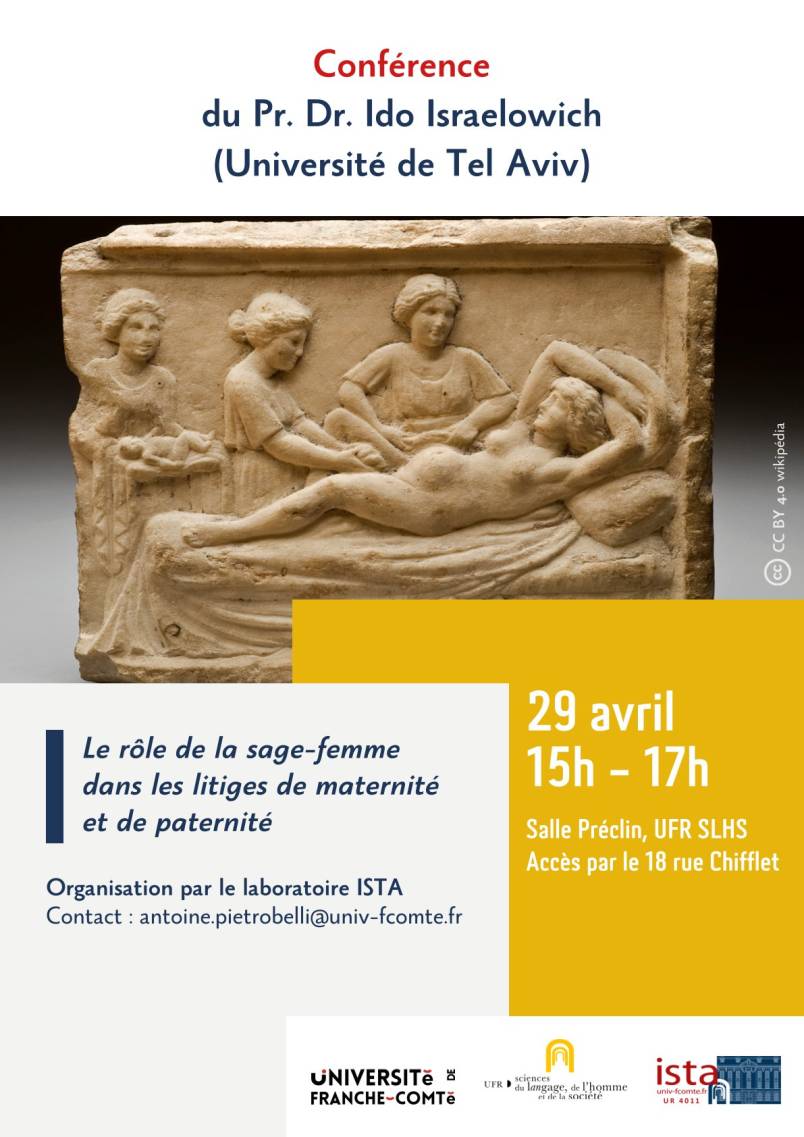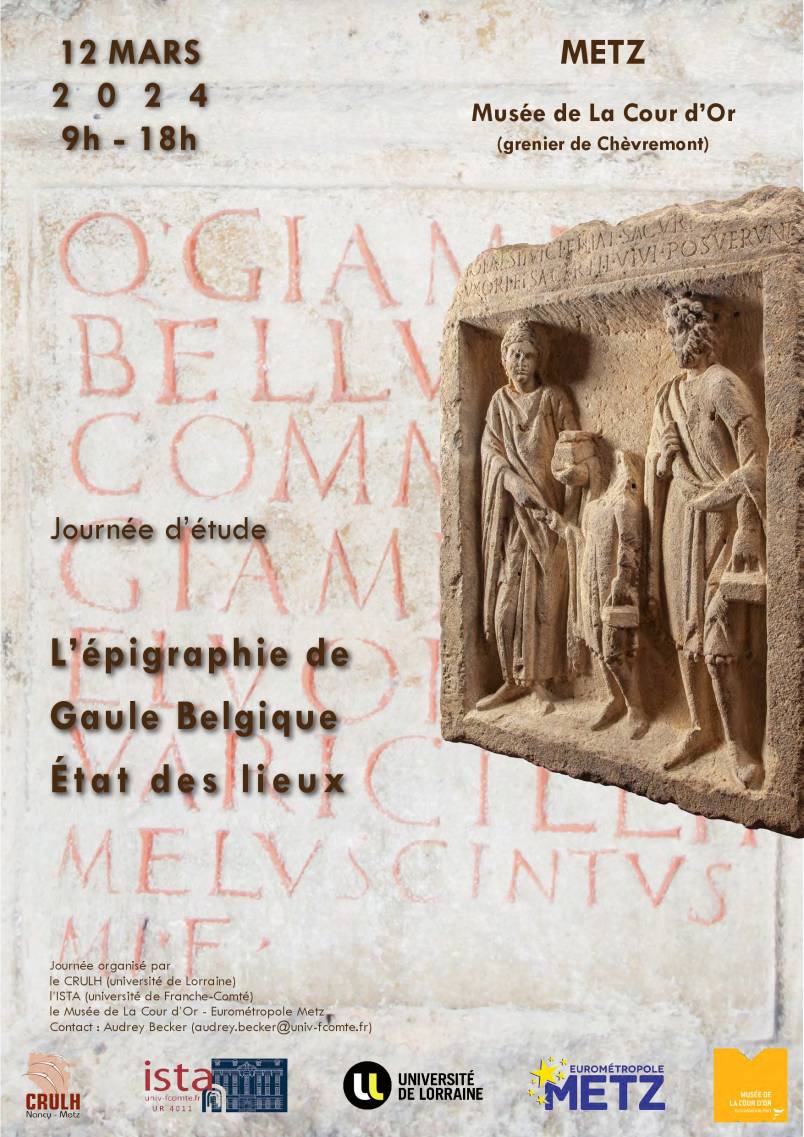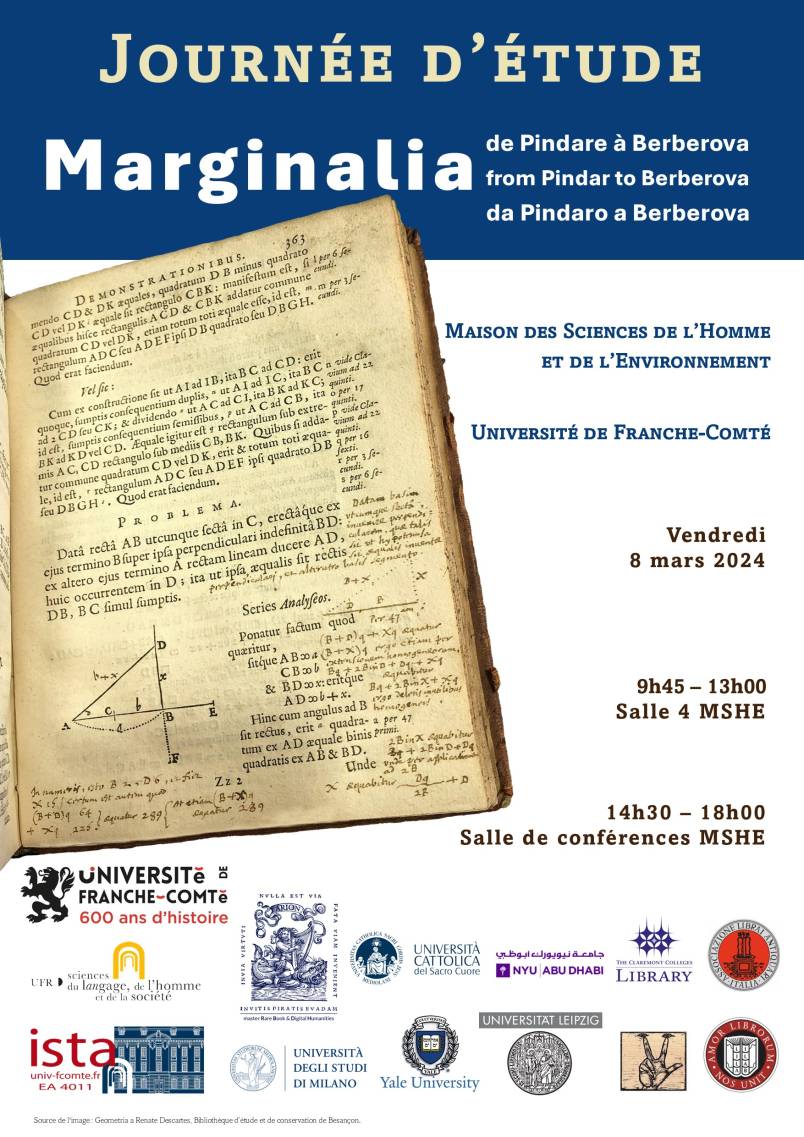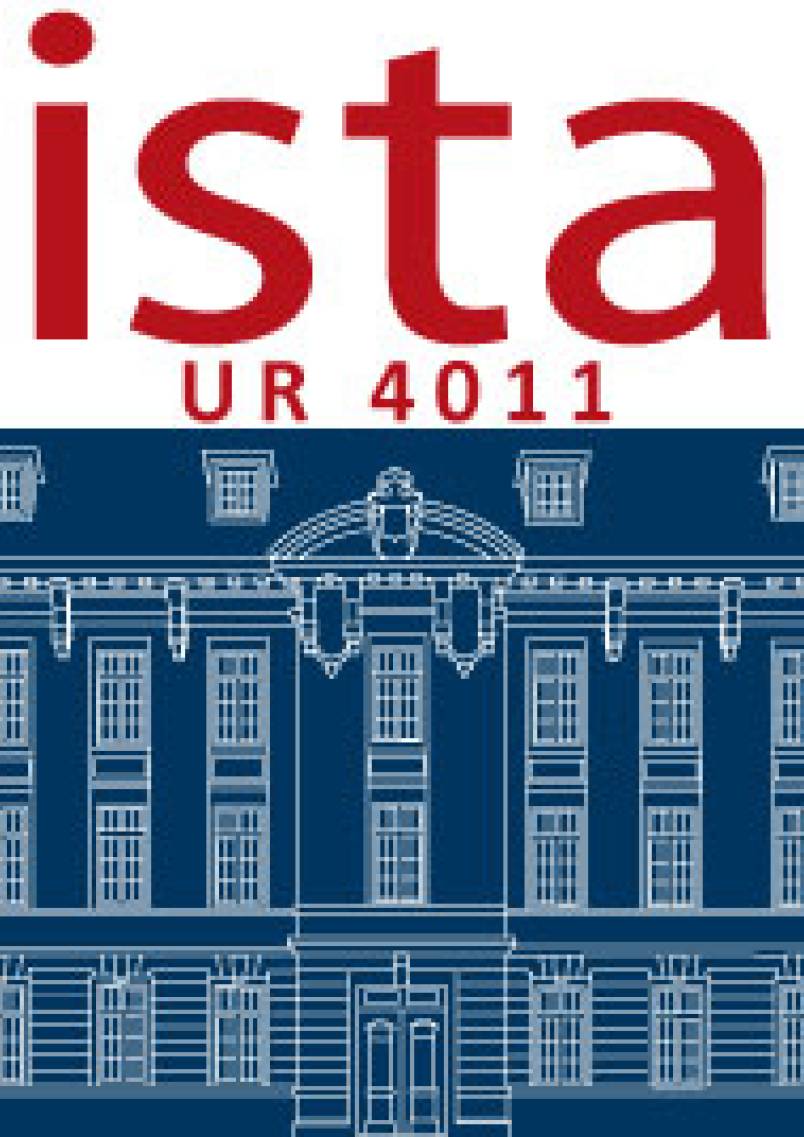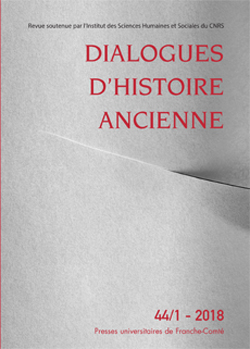Deprecated: pg_query(): Automatic fetching of PostgreSQL connection is deprecated in /var/www/ista/html/publista/Commun/dbHelper.php on line 204
Dialogues d'Histoire Ancienne Vol. 44 N°1
Deprecated: pg_query(): Automatic fetching of PostgreSQL connection is deprecated in /var/www/ista/html/publista/Commun/dbHelper.php on line 268
Warning: Trying to access array offset on value of type bool in /var/www/ista/html/publista/Commun/dbHelper.php on line 282
Auteur :
Warning: Undefined property: stdClass::$prenom in /var/www/ista/html/publista/livre.php on line 83
Warning: Undefined property: stdClass::$nom in /var/www/ista/html/publista/livre.php on line 83
Deprecated: pg_query(): Automatic fetching of PostgreSQL connection is deprecated in /var/www/ista/html/publista/Commun/dbHelper.php on line 224
Langue : Français
Cairn
Persee
PUFC
Deprecated: pg_query(): Automatic fetching of PostgreSQL connection is deprecated in /var/www/ista/html/publista/Commun/dbHelper.php on line 301
Deprecated: pg_query(): Automatic fetching of PostgreSQL connection is deprecated in /var/www/ista/html/publista/Commun/dbHelper.php on line 268
Warning: Trying to access array offset on value of type bool in /var/www/ista/html/publista/Commun/dbHelper.php on line 282
Auteur :
Warning: Undefined property: stdClass::$prenom in /var/www/ista/html/publista/livre.php on line 83
Warning: Undefined property: stdClass::$nom in /var/www/ista/html/publista/livre.php on line 83
Lieu d'édition : Besançon
Année de parution : 2018
Nombre de pages : 355p.
ISBN : 9782848676289
Format : 16 x 22 cm
Deprecated: pg_query(): Automatic fetching of PostgreSQL connection is deprecated in /var/www/ista/html/publista/Commun/dbHelper.php on line 224
Langue : Français
Cairn
Persee
PUFC
[Sommaire]
María del Mar Rodríguez Alcocer, Analfabetismo espartano, críticas atenienses y cultura oral
Cristina Soraci, Diritto latino, cittadinanza romana e municipalizzazione: trasformazioni graduali e progressive in Sicilia tra Cesare e Augusto
Ignacio Simón Cornago, C.Licinius Adin: uno de los últimos iberos
Ridha Ghaddhab, Centuriation et statut juridique de Sullecthum (Salakta)
Alessandro Maranesi, Tradition in the Making: New Approaches on Panegyricus Latinus, XII(9)
Mohamed-Arbi Nsiri, Ubi tantae splendidissimae civitates? : De la cité classique à la cité chrétienne, le cas de l’Afrique tardo-antique
Chronique des travaux en Égypte. Chronique 2018
Paysages et cadastres de l’Antiquité. Chronique 2018
I- Occupation du sol et dynamique des paysage
II- Nuevas inscripciones rupestres latinas de Oceja y los IIIIviri ibéricos de Iulia Lybica
III- Les Casae litterarvm du Codex aca Rivipvllensis 106
IV- Restitution des paysages culturels et valorisation du patrimoine
Les concepts en sciences de l’Antiquité?: mode d’emploi. Chronique 2018 – Réseaux, connectivité, graphes. 2. Les personnes, les nœuds et les vecteurs
I- Introduction
II- Rencontres entre Orient et Occident : les Phéniciens le long des côtes de la péninsule Ibérique et du Maroc
III- Théoroi se rendant à Olympie et en venant. Observations sur la communication religieuse à l’époque archaïque
IV- Les réseaux de Mithridate
Actualités
María del Mar Rodríguez Alcocer, Spartan Illiteracy, Athenian Critics and Oral Culture
Cristina Soraci, Latin Law, Roman Citizenship and Municipalization: Gradual and Progressive Transformations in Sicily between Caesar and Augustus
Ignacio Simón Cornago, C.Licinius Adin: One of the Last Iberians
Ridha Ghaddhab, Centuriation and Legal Status of Sullecthum (Salakta)
Alessandro Maranesi, Tradition in the Making: New Approaches on Panegyricus Latinus, XII(9)
Mohamed-Arbi Nsiri, Ubi tantae splendidissimae civitates?: from the Classical City to the Christian City, the Case of Late-Antic Africa
Archaeological and Epigraphical Survey in Egypt. Chronicles 2018
Landscapes and Field Patterns. Chronicles 2018
I- Ground Occupation and Landscape Dynamics
II- New Latin Rock Inscriptions at Oceja and the Iberian IIIIviri of Iulia Lybica
III- The Casae litterarvm of the Codex aca Rivipvllensis 106
IV- Restoration of Cultural Landscape and Heritage Valorisation
Concepts in Classics: a User’s Guide. Chronicles 2018 – Networks, Connectivity, Graphs. 2. People, nodes and vectors
I- Introduction
II- East-West Encounters: Phoenicians on the Coast of the Iberian Peninsula and Morocco
III- Theoroi on the Way to and from Olympia: Observations on Religious Communication in the Archaid Period
IV- Mithridates’ Networks
Reviews
Cristina Soraci, Diritto latino, cittadinanza romana e municipalizzazione: trasformazioni graduali e progressive in Sicilia tra Cesare e Augusto
Ignacio Simón Cornago, C.Licinius Adin: uno de los últimos iberos
Ridha Ghaddhab, Centuriation et statut juridique de Sullecthum (Salakta)
Alessandro Maranesi, Tradition in the Making: New Approaches on Panegyricus Latinus, XII(9)
Mohamed-Arbi Nsiri, Ubi tantae splendidissimae civitates? : De la cité classique à la cité chrétienne, le cas de l’Afrique tardo-antique
Chronique des travaux en Égypte. Chronique 2018
Paysages et cadastres de l’Antiquité. Chronique 2018
I- Occupation du sol et dynamique des paysage
II- Nuevas inscripciones rupestres latinas de Oceja y los IIIIviri ibéricos de Iulia Lybica
III- Les Casae litterarvm du Codex aca Rivipvllensis 106
IV- Restitution des paysages culturels et valorisation du patrimoine
Les concepts en sciences de l’Antiquité?: mode d’emploi. Chronique 2018 – Réseaux, connectivité, graphes. 2. Les personnes, les nœuds et les vecteurs
I- Introduction
II- Rencontres entre Orient et Occident : les Phéniciens le long des côtes de la péninsule Ibérique et du Maroc
III- Théoroi se rendant à Olympie et en venant. Observations sur la communication religieuse à l’époque archaïque
IV- Les réseaux de Mithridate
Actualités
María del Mar Rodríguez Alcocer, Spartan Illiteracy, Athenian Critics and Oral Culture
Cristina Soraci, Latin Law, Roman Citizenship and Municipalization: Gradual and Progressive Transformations in Sicily between Caesar and Augustus
Ignacio Simón Cornago, C.Licinius Adin: One of the Last Iberians
Ridha Ghaddhab, Centuriation and Legal Status of Sullecthum (Salakta)
Alessandro Maranesi, Tradition in the Making: New Approaches on Panegyricus Latinus, XII(9)
Mohamed-Arbi Nsiri, Ubi tantae splendidissimae civitates?: from the Classical City to the Christian City, the Case of Late-Antic Africa
Archaeological and Epigraphical Survey in Egypt. Chronicles 2018
Landscapes and Field Patterns. Chronicles 2018
I- Ground Occupation and Landscape Dynamics
II- New Latin Rock Inscriptions at Oceja and the Iberian IIIIviri of Iulia Lybica
III- The Casae litterarvm of the Codex aca Rivipvllensis 106
IV- Restoration of Cultural Landscape and Heritage Valorisation
Concepts in Classics: a User’s Guide. Chronicles 2018 – Networks, Connectivity, Graphs. 2. People, nodes and vectors
I- Introduction
II- East-West Encounters: Phoenicians on the Coast of the Iberian Peninsula and Morocco
III- Theoroi on the Way to and from Olympia: Observations on Religious Communication in the Archaid Period
IV- Mithridates’ Networks
Reviews
Deprecated: pg_query(): Automatic fetching of PostgreSQL connection is deprecated in /var/www/ista/html/publista/Commun/dbHelper.php on line 301
Descriptif du collectif
Deprecated: pg_query(): Automatic fetching of PostgreSQL connection is deprecated in /var/www/ista/html/publista/Commun/dbHelper.php on line 323
Auteur : María del Mar RODRÍGUEZ ALCOCERAnalphabétisme spartiate : critiques athénienne et culture orale[Résumé]On s’attachera dans la présente étude à l’analyse des critiques athéniennes, et plus spécialement celles émises par Isocrate, sur le supposé analphabétisme des Lacédémoniens, en s’appuyant sur les formes rhétoriques et les raisons idéologiques utilisées. Mots-clés : Oralité, Écriture, Analphabétisme, Sparte, Athènes.
Deprecated: pg_query(): Automatic fetching of PostgreSQL connection is deprecated in /var/www/ista/html/publista/Commun/dbHelper.php on line 323
Auteur : María del Mar RODRÍGUEZ ALCOCERSpartan Illiteracy, Athenian Critics and Oral Culture[Résumé]In this article I analyse the Athenian critics of the so-called Spartan illiteracy, specially Isocrates’, taking into account the ideological and philosophical reasons of the Athenian authors. Following this analysis, I focus on the reasons for the primacy of orality in Sparta. Keywords: Orality, Writing, Illiteracy, Sparta, Athens.
Deprecated: pg_query(): Automatic fetching of PostgreSQL connection is deprecated in /var/www/ista/html/publista/Commun/dbHelper.php on line 323
Auteur : Cristina SORACIDiritto latino, cittadinanza romana e municipalizzazione: trasformazioni graduali e progressive in Sicilia tra Cesare e Augusto[Résumé]Intorno al 46 a.C., Cesare concesse il diritto latino ai Siciliani; la cittadinanza romana successivamente elargita da Antonio fu, invece, ben presto revocata: solo con Augusto la condizione giuridica degli abitanti venne gradualmente e più stabilmente uniformata. Dal punto di vista dei regimi costituzionali, in Sicilia la trasformazione di alcune città in coloniae o municipia avvenne per gradi, non per effetto del provvedimento cesariano ma durante l’ epoca augustea; essa fu preceduta dall’ introduzione del duovirato. Parole chiave: Sicilia, Diritto latino, Cittadinanza romana, Regimi costituzionali, Duoviri.
Deprecated: pg_query(): Automatic fetching of PostgreSQL connection is deprecated in /var/www/ista/html/publista/Commun/dbHelper.php on line 323
Auteur : Cristina SORACILatin Law, Roman Citizenship and Municipalization: Gradual and Progressive Transformations in Sicily between Caesar and Augustus[Résumé]Around 46 BC, Caesar granted Latin law to the Sicilians; Roman citizenship, subsequently released by Anthony, was, nevertheless, quickly revoked: only thanks to Augustus the legal status of the inhabitants became gradually and more consistently uniform. With regard to the constitutional regimes, the transformation in Sicily of some cities into coloniae or municipia took place in stages, not due to the Caesarian measure but during the time of Augustus; it was preceded by the introduction of the duovirate. Keywords: Sicily, Latin Law, Roman Citizenship, Constitutional Regimes, Duoviri.
Deprecated: pg_query(): Automatic fetching of PostgreSQL connection is deprecated in /var/www/ista/html/publista/Commun/dbHelper.php on line 323
Auteur : Ignacio SIMÓN CORNAGOC. Licinius Adin, un des derniers Ibères[Résumé]Un cachet, sur un dolium de Can Pedrerol, porte le texte C. LIC. ADIN. Il s’agit d’un individu, avec un cognomen ibérique, appartenant à la gens Licinia, une des grandes familles et parmi les plus connues de Barcino qui se consacrait à l’exploitation vinicole. La présence d’un cognomen ibérique dans l’ onomastique de cet individu est à souligner, car rares sont les mentions d’ un nom ibérique dans l’épigraphie latine. Mots-clés : Dolium, Vin de Léetanie, Onomastique ibérique, Langue ibérique, Latinisation.
Deprecated: pg_query(): Automatic fetching of PostgreSQL connection is deprecated in /var/www/ista/html/publista/Commun/dbHelper.php on line 323
Auteur : Ignacio SIMÓN CORNAGOC. Licinius Adin: One of the Last Iberians[Résumé]The aim of this paper is the analysis of a dolium stamp discovered in Can Pedrerol with a Latin inscription: C. LIC. ADIN. He was a member of the Licinius family, well known in Barcino and linked to the wine industry. His Iberian cognomen is an exceptional example, as the existence of Iberian personal names in Latin inscriptions is rare. Keywords: Dolium, Layetanian Wine, Iberian Onomastics, Iberian Language, Latinization.
Deprecated: pg_query(): Automatic fetching of PostgreSQL connection is deprecated in /var/www/ista/html/publista/Commun/dbHelper.php on line 323
Auteur : Ridha GHADDHABCenturiation et statut juridique de Sullecthum (Salakta)[Résumé]La région de Salakta est couverte par une centuriation romaine bien structurée, aux limites nettes. Il y eut, entre Thapsus, Acholla et Thysdrus, une zone de colonisation romaine. De tous les secteurs donnant sur la côte, seul celui de Salakta a été centurié et a été l’objet d’assignations à des colons. Les inscriptions, bien que peu nombreuses, révèlent qu’il existait à la fin de IIe ou au début du IIIe siècle, une colonia Iulia Sullectha. C’est une colonie de fondation créée entre 46 et 27 avant J.-C. Nous pensons que cette dernière était le centre structurant de la région. Mots-clés : Byzacium, Ville libre, Sullectha, Cadastre, Centuriation, Colonia Iulia.
Deprecated: pg_query(): Automatic fetching of PostgreSQL connection is deprecated in /var/www/ista/html/publista/Commun/dbHelper.php on line 323
Auteur : Ridha GHADDHABCenturiation and Legal Status of Sullecthum (Salakta)[Résumé]The region of Salakta is covered by a well structured Roman centuriation with distinct limits. There had been between Thapsus, Acholla and Thydrus, a zone of Roman colonization. Among all the sectors giving access to the cost, only that of Salakta was centuriated and was the object of summons for some colonizers. The inscriptions, even though scarce, reveal that, towards the end of the second or at the beginning of the third century BC, a Colonia Iulia Sullectha used to exist. It is a colony of foundation created between 46 and 27 BC. This latter is thought to be a structuring center of the region. Keywords: Byzacium, Free City, Sullectha, Land Registry, Centuriation, Colonia Iulia.
Deprecated: pg_query(): Automatic fetching of PostgreSQL connection is deprecated in /var/www/ista/html/publista/Commun/dbHelper.php on line 323
Auteur : Alessandro MARANESITradition in the Making: New Approaches on Panegyricus Latinus, XII(9)[Résumé]The aim of this article is to show how during Constantine the Great’s reign the reconstruction of memory was locally based. In particular, I will focus on Panegyricus Latinus, XII(9) [= IX(12) CUF] to demonstrate how it was the result of a pagan Gallic perspective. The usage of recent past acted by the rhetorician in his narration of Milvian Bridge events proves that, in age of transitions, the reconstruction of Constantine’s victory was the result of different political agents. Keywords: Constantine the Great, Panegyrici Latini, Political Communication, Rhetoric.
Deprecated: pg_query(): Automatic fetching of PostgreSQL connection is deprecated in /var/www/ista/html/publista/Commun/dbHelper.php on line 323
La tradition en voie d’ élaboration : nouvelles approches à propos de Panegyricus Latinus, XII(9)[Résumé]Le propos de cet article est de montrer comment, sous le règne de Constantin le Grand, la reconstruction de la mémoire reposait sur des bases locales. On se focalisera, en particulier, sur Panegyricus Latinus, XII(9) [= IX(12) CUF] pour démontrer qu’ il résultait d’une perspective gauloise païenne. L’utilisation du passé récent que fait le rhétoricien dans son récit de la bataille du pont Milvius prouve que, dans cette période de transition, la reconstruction de la victoire de Constantin était la résultante de divers agents politiques. Mots-clés : Constantin le Grand, Panegyrici Latini, Communication politique, Rhétorique.
Deprecated: pg_query(): Automatic fetching of PostgreSQL connection is deprecated in /var/www/ista/html/publista/Commun/dbHelper.php on line 323
Auteur : Mohamed-Arbi NSIRIUbi tantae splendidissimae civitates?: from the Classical City to the Christian City, the Case of Late- Antic Africa[Résumé]Since the late 1970s, historians have questioned the links between the classical city and the Christian city. Some consider the Christian city as a creation of the late Roman era. Others, on the contrary, defend the thesis of the permanence of the urban fact but take for original the nature and functions of the late-ancient city. There is no doubt that urban life after the 4th century is very different from that of the Roman Empire because of the dominant position occupied by the Church, the new nature of the institutions, and the social composition of the urban population. Yet, the city of the Early Christian era often occupied the same site as the city of the classic period. The African example shows that the late-Antic city remained largely dependent on an urban fabric established in the classical era, despite the many changes that marked Africa from the 5th century onward. Keywords: Late Antiquity, Africa, Classical City, Christian City.
Deprecated: pg_query(): Automatic fetching of PostgreSQL connection is deprecated in /var/www/ista/html/publista/Commun/dbHelper.php on line 323
Auteur : Mohamed-Arbi NSIRIUbi tantae splendidissimae civitates ? : de la cité classique à la cité chrétienne, le cas de l’ Afrique tardo-antique[Résumé]Depuis la fin des années 1970, les historiens s’interrogent sur les liens qu’entretient la ville classique avec la ville chrétienne. Certains considèrent cette dernière comme une création de l’ époque romaine tardive. D’autres, au contraire, défendent la thèse de la permanence du fait urbain mais tiennent pour originale la nature et les fonctions de la ville tardo-antique. S’il ne fait aucun doute que la vie urbaine après le IVe siècle est très différente de celle du Haut Empire romain, en raison de la place dominante occupée par l’Église, de la nature nouvelle des institutions et de la composition sociale de la population, il reste néanmoins que, souvent, la ville de l’époque paléochrétienne occupe le même site que la ville de l’époque classique. L’exemple africain montre que la ville tardo-antique reste en grande partie tributaire d’une trame urbaine mise en place à l’époque classique, malgré les multiples changements qui ont marqué l’Afrique à partir du Ve siècle. Mots-clés : Antiquité Tardive, Afrique, Cité classique, Cité chrétienne.

